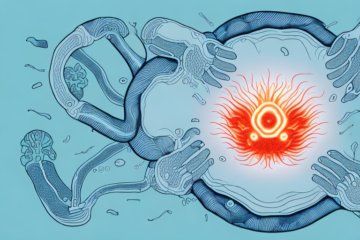Have you ever thought about how gratitude affects your health? Recent research shows that practicing gratitude can have a significant impact on both physical and mental health. In this article, we will explore the science of gratitude and its connections to health, as well as practical tips for incorporating gratitude into your daily life.
The Science of Gratitude and Its Impact on Health
Gratitude is more than just a pleasant emotion. It actually activates the brain’s reward center and releases feel-good neurotransmitters like dopamine and serotonin. This can help to lower stress and anxiety levels, boost immune function, and promote overall well-being. Additionally, studies have found that people who regularly practice gratitude have higher levels of positive emotions, better sleep quality, and an overall improved quality of life.
Furthermore, research has shown that practicing gratitude can also improve relationships and social connections. Expressing gratitude towards others can strengthen bonds and increase feelings of empathy and compassion. It can also lead to more positive interactions and a greater sense of community. In fact, a study published in the Journal of Social and Personal Relationships found that expressing gratitude towards a romantic partner led to increased relationship satisfaction and a stronger sense of connection.
How Practicing Gratitude Can Boost Your Immune System
The immune system is essential for protecting us from harmful pathogens and diseases. However, chronic stress can weaken the immune system and make us more vulnerable to illnesses. Fortunately, gratitude may act as a buffer against stress. In one study, participants who wrote daily gratitude letters showed an increase in immune function markers compared to those who wrote about negative experiences. This suggests that the act of focusing on positive experiences and emotions may have a direct impact on the immune system.
Moreover, practicing gratitude can also improve our mental health, which in turn can have a positive effect on our immune system. When we feel grateful, we are more likely to experience positive emotions such as happiness and contentment. These emotions can reduce stress and anxiety, which are known to weaken the immune system. By reducing stress and anxiety, gratitude can help to strengthen our immune system and improve our overall health.
Finally, gratitude can also improve our relationships with others, which can have a positive impact on our immune system. When we express gratitude towards others, we strengthen our social connections and build stronger relationships. This can lead to increased feelings of happiness and well-being, which can boost our immune system. Additionally, having strong social connections has been shown to improve overall health and longevity, further highlighting the importance of practicing gratitude.
The Link Between Gratitude and Mental Health
When we experience negative emotions, such as anxiety, depression, or anger, it can take a toll on our mental health. Gratitude, on the other hand, has been shown to improve mental well-being. A 2015 study found that students who practiced gratitude had lower levels of stress, anxiety, and depression, as well as higher levels of life satisfaction. Additionally, gratitude can help reframe negative thoughts and increase resilience, making it a useful tool for coping with difficult situations and emotions.
Furthermore, practicing gratitude can also improve our physical health. Studies have shown that people who regularly express gratitude have lower blood pressure, better immune function, and are less likely to experience chronic pain. This may be because gratitude reduces inflammation in the body, which is linked to a variety of health problems.
Finally, gratitude can also improve our relationships with others. When we express gratitude towards someone, it strengthens our bond with them and can lead to increased feelings of closeness and connection. Additionally, when we focus on the positive aspects of our relationships, rather than the negative, we are more likely to experience greater satisfaction and happiness in those relationships.
The Role of Gratitude in Managing Chronic Illnesses
Living with a chronic illness can be a challenging and stressful experience. However, practicing gratitude can help manage the negative emotions associated with chronic conditions. By focusing on the positive aspects of life, people with chronic illnesses may be better able to cope with their symptoms and improve their overall well-being. Additionally, gratitude can help improve relationships with caregivers and loved ones, reducing feelings of loneliness and isolation.
Research has shown that practicing gratitude can also have physical health benefits for people with chronic illnesses. Studies have found that gratitude can improve sleep quality, reduce inflammation, and lower blood pressure. These benefits can help manage symptoms and improve overall health outcomes for people with chronic conditions.
It’s important to note that practicing gratitude does not mean ignoring or minimizing the challenges of living with a chronic illness. Rather, it involves acknowledging the difficulties while also focusing on the positive aspects of life. This can be done through simple practices such as keeping a gratitude journal, expressing gratitude to loved ones, or taking time to appreciate the beauty of nature.
Why Cultivating a Grateful Attitude is Essential for Overall Wellness
Gratitude is not just a feel-good emotion; it is an essential component of overall wellness. By cultivating gratitude, we can increase positive emotions and decrease negative emotions, which can improve both physical and mental health. Additionally, gratitude can improve relationships, increase resilience, and help us cope with difficult situations. In short, practicing gratitude is an easy and effective way to improve our overall well-being.
Research has shown that practicing gratitude can also improve sleep quality. A study conducted on a group of adults who wrote down things they were grateful for before bed reported better sleep quality and duration compared to those who did not practice gratitude. This is because gratitude helps to calm the mind and reduce stress, which are common causes of sleep problems. Therefore, incorporating gratitude into our daily routine can not only improve our mental and physical health but also help us get a good night’s sleep.
Tips for Incorporating Gratitude into Your Daily Routine
If you’re new to the practice of gratitude, it can be helpful to start small. Here are some tips for incorporating gratitude into your daily life:
- Start a gratitude journal: Take a few minutes each day to write down three things you’re grateful for.
- Say “thank you”: Make a conscious effort to thank the people in your life who have helped you or made a difference.
- Notice the small things: Take time to appreciate the little things in life, such as a good cup of coffee or a beautiful sunset.
- Practice mindfulness: Engage in mindfulness practices, such as meditation or deep breathing, to cultivate a sense of gratitude and awareness.
Another way to incorporate gratitude into your daily routine is to make a habit of expressing gratitude before meals. Take a moment to reflect on the food you are about to eat and express gratitude for the people who grew, harvested, and prepared it.
You can also try incorporating gratitude into your daily conversations. Instead of complaining or focusing on the negative, try to find something positive to be grateful for in every situation. This can help shift your mindset and cultivate a more positive outlook on life.
The Benefits of Writing a Gratitude Journal
One of the easiest ways to practice gratitude is to start a gratitude journal. This involves taking a few minutes each day to write down three things you’re grateful for. Research has found that people who keep gratitude journals have higher levels of positive emotions, improved sleep quality, and better overall well-being. Additionally, writing down what you’re grateful for can help you notice the small things in life that are easy to overlook.
Moreover, keeping a gratitude journal can also help you cope with stress and adversity. When you focus on the positive aspects of your life, you are better equipped to handle challenges and setbacks. It can also help you cultivate a more optimistic outlook on life, which can lead to greater resilience and mental toughness. By regularly reflecting on the good things in your life, you can develop a more positive mindset and improve your overall quality of life.
How to Practice Gratitude Meditation for Better Health
Gratitude meditation is a simple yet powerful technique for cultivating feelings of gratitude. To practice, find a quiet place to sit or lay down and focus on your breath. As you inhale, imagine breathing in feelings of gratitude and appreciation. As you exhale, imagine releasing any negativity or stress. You can also visualize a person or situation you’re grateful for and focus on that feeling of gratitude. Even just a few minutes of gratitude meditation each day can have a positive impact on mental and physical health.
Research has shown that practicing gratitude meditation can lead to increased levels of happiness and well-being. It can also improve relationships and social connections, as expressing gratitude can strengthen bonds with others. Additionally, gratitude meditation has been found to reduce symptoms of depression and anxiety, and even improve sleep quality.
It’s important to remember that gratitude meditation is a practice, and like any practice, it takes time and consistency to see results. It’s okay if your mind wanders during meditation, simply acknowledge the thought and gently bring your focus back to your breath and feelings of gratitude. With regular practice, you may find that feelings of gratitude become more natural and present in your daily life.
The Importance of Expressing Gratitude to Others
Expressing gratitude to others can have a positive impact on both the giver and receiver. When we express gratitude, we reinforce positive feelings and strengthen relationships. Additionally, showing appreciation can boost our own feelings of well-being and reduce negative emotions like jealousy or envy. Whether it’s a kind word or a thoughtful gesture, expressing gratitude to others is a simple but powerful act.
Research has shown that expressing gratitude can also have physical health benefits. Grateful people have been found to have stronger immune systems, lower blood pressure, and better sleep quality. This may be because expressing gratitude reduces stress and promotes relaxation. So, not only does expressing gratitude make us feel good emotionally, but it can also have a positive impact on our physical health.
Gratitude and Stress: How Appreciation Can Reduce Anxiety
Stress and anxiety are common experiences that can take a toll on our mental and physical health. Fortunately, gratitude can be an effective tool for reducing stress levels. By focusing on positive experiences and emotions, we can shift our attention away from negative thoughts and feelings. Additionally, expressing gratitude to others can improve social support and reduce feelings of isolation and loneliness, both of which can contribute to stress and anxiety.
Research has shown that practicing gratitude can also improve sleep quality. A study conducted on college students found that those who wrote down things they were grateful for before bed had better sleep quality and felt more refreshed in the morning. This is because gratitude can promote relaxation and reduce the activation of the sympathetic nervous system, which is responsible for the fight-or-flight response.
Furthermore, gratitude can help us cope with difficult situations and increase our resilience. When we focus on what we are grateful for, we are better able to find meaning and purpose in our lives, even during challenging times. This can help us bounce back from setbacks and maintain a positive outlook on life, which can ultimately reduce stress and anxiety.
How to Teach Your Children the Power of Gratitude for their Health and Happiness
Teaching children the value of gratitude can be an important part of their overall health and happiness. Encouraging kids to focus on the positive aspects of their lives and express appreciation can help promote a positive sense of self and increase resilience. Here are some tips for teaching your children about gratitude:
- Lead by example: Practice gratitude yourself and model the behavior you want to see in your children.
- Make it a daily practice: Encourage your children to write down or share what they’re grateful for each day.
- Use positive reinforcement: Praise your children for expressing gratitude and reinforce the positive effects of the behavior.
- Encourage acts of kindness: Encourage your children to show gratitude to others through kind words or actions.
Another way to teach your children about gratitude is to encourage them to give back to their community. Volunteering at a local charity or participating in a community service project can help children understand the importance of gratitude and giving back to others.
It’s also important to help your children understand that gratitude doesn’t always come easily. Sometimes, it can be difficult to find things to be grateful for, especially during challenging times. Encourage your children to look for the small things in life that they can appreciate, such as a beautiful sunset or a kind gesture from a friend.
The Connection Between Gratitude and Sleep Quality
Sleep is essential for overall health and well-being. However, stress and negative emotions can interfere with sleep quality. Gratitude, on the other hand, has been shown to improve sleep quality. In one study, participants who wrote down what they were grateful for before bed fell asleep faster and slept longer compared to those who wrote about negative experiences. Additionally, focusing on positive emotions before bed may help to reduce stress and anxiety, leading to better sleep.
Furthermore, practicing gratitude regularly can have long-term benefits for sleep quality. A study conducted on college students found that those who practiced gratitude had better sleep quality and felt more refreshed in the morning compared to those who did not practice gratitude. This suggests that incorporating gratitude into your daily routine can have a positive impact on your sleep habits and overall well-being.
How to Overcome Negative Thinking with the Help of Gratitude
Negative thinking can be a difficult cycle to break. However, practicing gratitude can help shift our focus away from negative thoughts and onto positive experiences. By intentionally practicing gratitude, we can train our brains to notice and appreciate the good in our lives. Additionally, gratitude can help reframe negative situations and promote a more positive outlook on life.
Research has shown that practicing gratitude can also have physical health benefits. It can lower stress levels, improve sleep quality, and even boost the immune system. By focusing on the positive aspects of our lives, we can reduce the impact of stress and improve our overall well-being. So, the next time you find yourself stuck in negative thinking, try practicing gratitude and see how it can positively impact both your mental and physical health.
Simple Ways to Practice Gratitude When You’re Feeling Down
When we’re feeling down, it can be difficult to feel grateful for anything. However, practicing gratitude can be a useful tool for lifting our mood and improving our outlook. Here are some simple ways to practice gratitude when you’re feeling down:
- Focus on the present moment: Engage in mindfulness practices, such as deep breathing or meditation, to help ground yourself in the present moment.
- Find one thing to be grateful for: Even if it’s something small, taking the time to recognize and appreciate one positive thing can help shift your focus away from negative thoughts.
- Express gratitude to someone else: Showing appreciation to others can help promote positive feelings and strengthen relationships.
- Use positive affirmations: Practice using positive statements and affirmations, such as “I am grateful for my health and well-being” or “I am surrounded by love and support.”
Overall, practicing gratitude is an easy and effective way to improve both physical and mental health. By focusing on positive experiences and emotions, we can increase feelings of well-being, improve relationships, and promote overall wellness. Whether through journaling, meditation, or acts of kindness, there are many ways to incorporate gratitude into our daily lives.
Another way to practice gratitude is to keep a gratitude journal. This involves writing down things you are grateful for each day, whether it’s a good cup of coffee or a supportive friend. By actively seeking out things to be grateful for, we can train our brains to focus on the positive and cultivate a more optimistic outlook.










